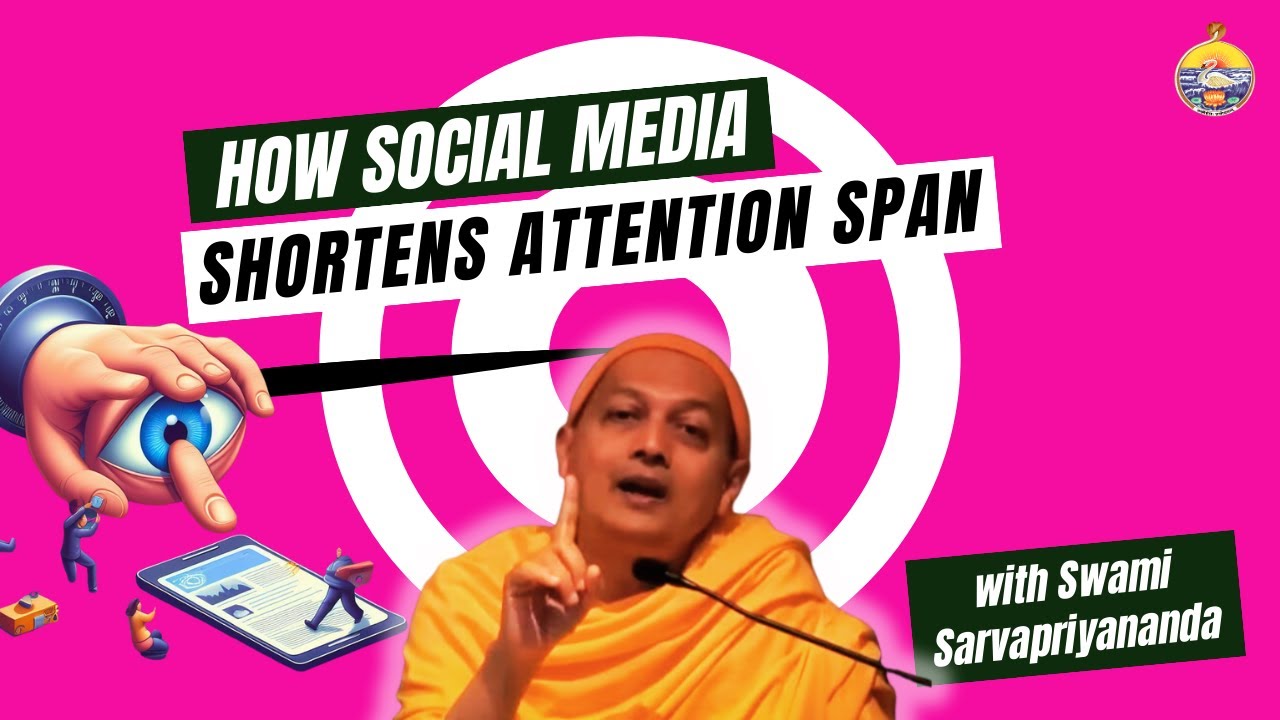Hyperfocus Book Summary In Hindi By Chris Bailey
Summary
TLDRThis video script delves into the concept of the 'attention economy,' highlighting how platforms like TikTok and YouTube rapidly became billion-dollar businesses by capturing our focus. It emphasizes the value of attention over money, demonstrating through an experiment that our focus can be influenced and manipulated. The script discusses strategies to enhance attention span, such as improving sleep, practicing low stimulation, and embracing boredom to increase mental toughness. It concludes by advocating for a mindful approach to media consumption and digital disconnection to foster a more focused and productive life.
Takeaways
- 💡 The attention economy is the current economic model where attention is more valuable than money, influencing behavior and decision-making.
- 🌾 Historically, economies have evolved from agricultural to industrial and now to the attention economy, emphasizing the shift in value from physical goods to mental engagement.
- 📺 The rapid growth of platforms like TikTok, YouTube, and Instagram into billion-dollar businesses is attributed to their ability to capture and monetize attention.
- 🧘 The experiment in the script demonstrates that even a video can command attention and influence actions, highlighting the power of media on human behavior.
- 🤯 Businesses, governments, and other entities are all competing for our limited attention, which can be harnessed for both positive and negative outcomes.
- 🕒 Modern distractions are so prevalent that research shows a significant portion of people will leave a website if it takes more than a few seconds to load, affecting businesses like Amazon significantly.
- 📚 Chris Bailey's experiences and research underscore the idea that our lives are increasingly dominated by screens and digital distractions.
- 💤 The script suggests that quality sleep is crucial for increasing attentional space, which in turn can boost productivity and focus.
- 🌀 The concept of 'novelty bias' explains why our brains crave constant stimulation, leading to a decrease in attention span and focus over time.
- 🧘♂️ Engaging in low-stimulation activities and learning to tolerate boredom can increase attention span and mental toughness, as demonstrated by Chris Bailey's personal experiments.
- 🚫 The author advocates for setting boundaries on media consumption and practicing disconnection rituals to foster creativity and a more focused life.
Q & A
What is the main theme of the video script?
-The main theme of the video script is the concept of the 'attention economy' and how it has become the fundamental currency in today's world, affecting various aspects of life and business.
Why do platforms like TikTok, YouTube, and Instagram become billion-dollar businesses faster than traditional industries?
-These platforms become billion-dollar businesses faster due to their ability to capture and monetize human attention more effectively and quickly than traditional industries.
What is the 'attention economy'?
-The 'attention economy' refers to the current economic model where attention is the most valuable resource, and businesses compete to capture it to influence behavior and drive sales.
How does the video demonstrate that we live in an attention economy?
-The video demonstrates this by conducting a simple experiment where viewers are instructed to take a breath, showing that the video has captured their attention and can influence their actions.
What is the significance of the 'attentional space' concept mentioned in the script?
-The 'attentional space' refers to the mental capacity to process information by focusing on it. It is significant because it determines how effectively one can concentrate and be productive.
According to the script, what is the average time a teenager spends looking at an Instagram post?
-According to the script, a teenager spends an average of 10 seconds looking at an Instagram post.
Why is it difficult for people to focus on one thing for an extended period of time today?
-It is difficult because of the overstimulation from constant exposure to digital content and the novelty bias of the brain, which seeks new information and experiences.
What is the 'Scattefocus mode' as described in the script?
-The 'Scattefocus mode' is a state of mind where creativity thrives, often occurring when the mind is engaged in mindless activities, allowing it to make connections and generate new ideas.
What is the 'phone swap technique' mentioned in the script?
-The 'phone swap technique' is a method suggested by Chris Bailey where individuals swap phones during social gatherings to avoid distractions and give each other undivided attention.
How can practicing low stimulation help improve focus and productivity?
-Practicing low stimulation helps by reducing the overstimulation of the brain, allowing it to become accustomed to focusing on one task at a time without the need for constant novelty.
What is the connection between sleep and attentional space according to the script?
-The script suggests that getting adequate sleep can increase attentional space by 58%, implying that proper rest is crucial for enhancing focus and productivity.
What is the role of 'boredom' in enhancing mental toughness and focus according to the author?
-According to the author, learning to tolerate boredom and engaging in low-stimulation activities can help increase mental toughness and focus by training the brain to handle less stimulating environments.
Outlines

This section is available to paid users only. Please upgrade to access this part.
Upgrade NowMindmap

This section is available to paid users only. Please upgrade to access this part.
Upgrade NowKeywords

This section is available to paid users only. Please upgrade to access this part.
Upgrade NowHighlights

This section is available to paid users only. Please upgrade to access this part.
Upgrade NowTranscripts

This section is available to paid users only. Please upgrade to access this part.
Upgrade NowBrowse More Related Video

Role of Social Media on Reducing the Attention Span | Swami Sarvapriyananda

The World Is Not Fair Anymore | Hrithik Mehlawat

How I Made $7M On Social Media With 0 Followers

How Social Media Addiction Destroys Your Brain

the hidden truth behind our declining attention spans

Green Entrepreneurship: A Pathway towards Sustainable Development | Corpbiz
5.0 / 5 (0 votes)